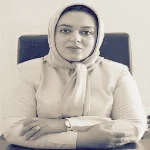
Dr. Ali Mohammadi Moghadam is a distinguished neurosurgeon and spine specialist based in Tehran, Iran, with over 11 years of […]
A lumbar herniated disc occurs when the soft, gel-like center (nucleus pulposus) of a spinal disc in the lower back bulges or ruptures through a tear in the disc’s outer layer (annulus fibrosus). This condition can compress nearby nerves, causing pain, numbness, or weakness in the lower back and legs.
Understanding the underlying mechanisms, symptoms, diagnosis, and treatment options is crucial for effective management of this condition.
Mechanism and Causes
The lumbar spine is composed of five vertebrae (L1 to L5), each separated by intervertebral discs that act as shock absorbers. Over time, these discs can undergo degeneration due to age, repetitive stress, or injury. The nucleus pulposus can herniate or bulge out of its normal position, impinging on nearby spinal nerves or the spinal cord.
This herniation can occur due to sudden trauma, such as lifting a heavy object, or through gradual wear and tear.
Symptoms
The primary symptom of a lumbar herniated disc is lower back pain, often accompanied by radiating pain down the leg, known as sciatica. Patients may experience:
Sharp or Dull Pain: This pain can be localized in the lower back or radiate to the buttocks, thighs, and calves.
Numbness or Tingling: Compression of the sciatic nerve can lead to a sensation of pins and needles in the leg or foot.
Weakness: Affected muscles may become weak, leading to difficulty in walking or performing daily activities.
Changes in Reflexes: Altered reflexes in the lower extremities may be noted during a physical examination.
Diagnosis
Diagnosing a lumbar herniated disc involves a thorough medical history and physical examination. Key diagnostic tools include:
Imaging Studies: MRI (Magnetic Resonance Imaging) is the gold standard for visualizing disc herniation and its impact on surrounding nerves. CT (Computed Tomography) scans may also be used.
X-rays: While X-rays do not show discs directly, they can rule out other conditions such as fractures or tumors.
Electromyography (EMG): This test measures electrical activity in muscles and can help determine the extent of nerve damage.
Treatment Options
Treatment for a lumbar herniated disc varies depending on the severity of symptoms and the impact on daily life. Options include:
Conservative Management:
Rest: Short-term rest can help reduce inflammation and alleviate pain.
Medications: Nonsteroidal anti-inflammatory drugs (NSAIDs) and pain relievers can manage pain and reduce inflammation.
Physical Therapy: Exercises and stretches can strengthen the muscles supporting the spine and improve flexibility.
Heat and Ice Therapy: Applying heat or ice packs can provide temporary relief from pain and inflammation.
Interventional Procedures:
Epidural Steroid Injections: These injections deliver corticosteroids directly to the affected area to reduce inflammation and pain.
Nerve Blocks: Targeted nerve blocks can provide temporary relief and help identify the specific nerve root causing symptoms.
Surgical Intervention:
Discectomy: This procedure involves removing the herniated portion of the disc to relieve pressure on the nerve.
Laminectomy: Sometimes performed alongside a discectomy, this surgery removes a portion of the vertebra (lamina) to provide more space for the nerves.
Artificial Disc Replacement: In some cases, the damaged disc may be replaced with an artificial one to maintain spinal function and reduce pain.
Prognosis and Recovery
Most individuals with a lumbar herniated disc respond well to conservative treatments and experience significant improvement within a few weeks to months. Surgical options are generally considered only when conservative measures fail or if there is severe neurological impairment.
Post-treatment, physical therapy, and lifestyle modifications, including maintaining a healthy weight and practicing good posture, are essential for long-term relief and prevention of recurrence.

Dr. Ali Mohammadi Moghadam is a distinguished neurosurgeon and spine specialist based in Tehran, Iran, with over 11 years of […]

Dr. Maryam Chatraei is a dedicated specialist in Physical Medicine and Rehabilitation based in Isfahan, Iran. She earned her medical degree in 2006 and […]

Dr. Farnaz Dehghan Hossein Abadi is an accomplished Physical Medicine and Rehabilitation specialist practicing in Isfahan, Iran. Recognized for her exceptional academic […]

Dr. Zohre Eshghi is a highly skilled specialist in Physical Medicine and Rehabilitation in Shiraz, Iran, dedicated to diagnosing and treating […]

Dr. Kaynoosh Homayouni is a distinguished specialist in Physical Medicine and Rehabilitation based in Shiraz, Iran. With extensive experience in […]

Dr. Hoda Jazayeri is a specialist in Physical Medicine and Rehabilitation, focusing on the non-surgical treatment of musculoskeletal conditions. With […]

Dr. Behnoud Samadi is a highly skilled specialist in Physical Medicine and Rehabilitation based in Tehran, Iran. With advanced training in manual osteopathy, […]

Dr. Sara Moradnia is a specialist in physical medicine and rehabilitation based in Tehran, Iran. She earned her medical degree […]

Dr. Ana Avamehr is a distinguished specialist in physical medicine and rehabilitation based in Tehran, Iran. She earned her medical […]

Dr. Pegah Yavari is a distinguished specialist in physical medicine and rehabilitation based in Tehran, Iran. Born in 1990, she […]

Dr. Mostafa Azimi is a distinguished sports medicine specialist based in Tehran, Iran, with extensive experience in non-surgical treatments for […]

Dr. Shahin Salehi is a distinguished sports medicine specialist based in Tehran, Iran, with extensive experience in treating musculoskeletal injuries […]